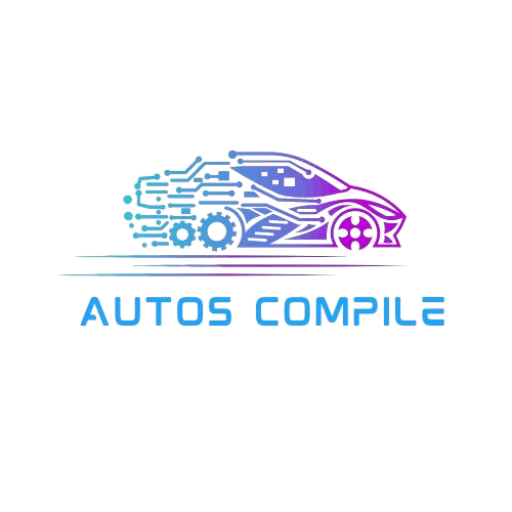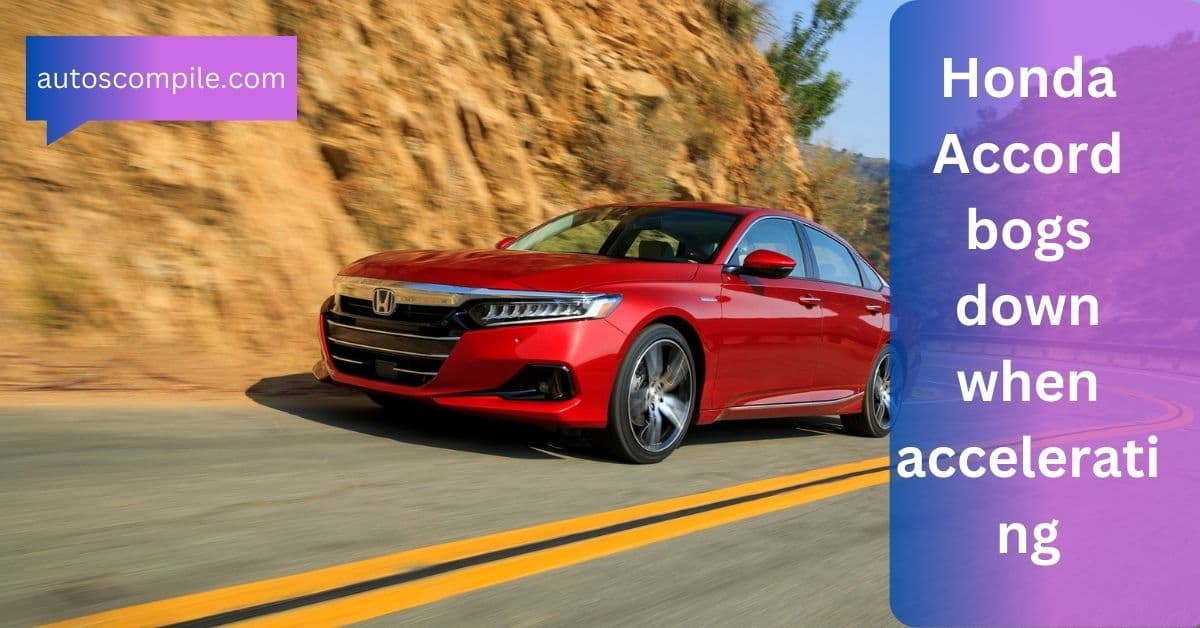If your Honda Accord bogs down when accelerating, it could be due to a dirty air filter, clogged fuel system, or worn spark plugs. I faced this issue too, and after replacing the air filter and checking the fuel system, the car’s performance improved significantly. Regular maintenance can prevent this frustrating problem.
If your Honda Accord bogs down when accelerating, it might be a clogged fuel filter, a bad fuel pump, or a faulty sensor. Check for error codes and inspect these components for issues.
Honda Accord bogs down when accelerating Experiencing a bogging issue when accelerating in your Honda Accord? It’s likely a clogged fuel filter or a faulty sensor-check these components to get your ride running smoothly again!
What Is the Honda Accord?
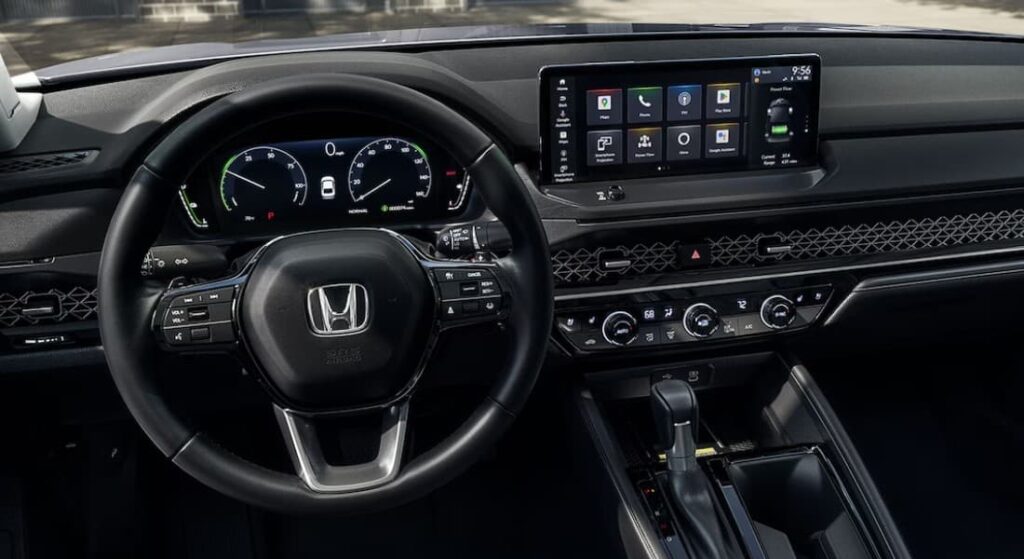
The Honda Accord is a popular mid-size sedan manufactured by Honda. Renowned for its reliability, fuel efficiency, and spacious interior, the Accord has been a staple in the automotive market since its debut in 1976.
It offers a blend of performance and comfort, making it a preferred choice for families and commuters alike. The Accord’s sleek design, advanced safety features, and a range of trim levels cater to a variety of preferences and needs, contributing to its longstanding reputation as a dependable and well-rounded vehicle.
History Of Honda Accord:
Brief History of the Honda Accord is
- 1976: The Honda Accord launches as a compact car, praised for its reliability and fuel efficiency.
- 1982: The second generation arrives, offering more space and modern features like electronic fuel injection.
- 1990: The Accord’s fourth generation introduces a larger, more comfortable design with advanced safety features.
- 1998: The sixth generation brings a sleek redesign and improved safety with side airbags.
- 2003: The seventh generation offers a more refined look and added features like a navigation system.
- 2008: The eighth generation focuses on luxury and technology, including Bluetooth connectivity.
- 2013: The ninth generation introduces a hybrid option and advanced tech features.
- 2018: The tenth generation debuts with a modern design, turbocharged engine, and improved fuel efficiency.
The Honda Accord has evolved, consistently providing reliability, comfort, and innovation.
Common Uses Of The Honda Accord:
The Honda Accord is widely used for various purposes due to its versatility and practicality. Here are some common uses:
- Daily Commuting: The Accord’s fuel efficiency, comfort, and reliability make it a popular choice for daily commutes to work or school.
- Family Vehicle: With its spacious interior and ample cargo space, the Accord is often used as a family car, accommodating both children and adults comfortably.
- Road Trips: Its comfortable seating and smooth ride make the Accord suitable for extended road trips.
- Business Transportation: Many businesses use the Accord as a company car due to its professional appearance and dependable performance.
Why Honda Bogs Down When Accelerating?
if your Honda Accord bogs down when accelerating, it typically points to a problem that affects engine performance. Here are some common reasons:
1. Dirty Air Filter:
A clogged air filter restricts airflow to the engine, leading to poor acceleration.
2. Fuel System Issues:
Problems with the fuel filter, fuel pump, or fuel injectors can limit fuel flow, causing hesitation during acceleration.
3. Worn Spark Plugs:
Faulty spark plugs can cause engine misfires, resulting in rough or sluggish acceleration.
4. Throttle Body Problems:
A dirty or malfunctioning throttle body can disrupt the flow of air into the engine, affecting acceleration.
5. Transmission Issues:
Slipping or malfunctioning transmission can lead to poor acceleration and a decrease in overall performance.
6. Vacuum Leaks:
Leaks in the vacuum system can cause incorrect air-fuel mixtures, leading to rough or hesitant acceleration.
How Can Vacuum Leaks Affect My Accord’s Acceleration?
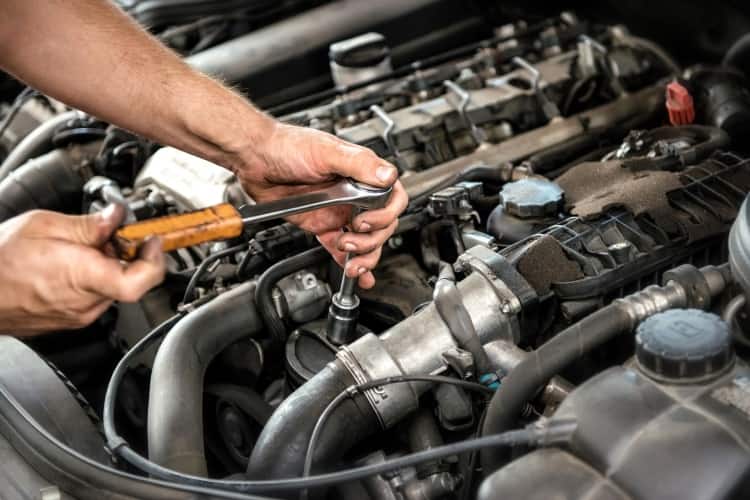
Vacuum leaks can seriously affect your Honda Accord’s acceleration by disrupting the engine’s air-fuel mixture. When extra air enters the engine through a vacuum leak, it creates an imbalance, leading to a lean mixture with too much air and not enough fuel.
This imbalance can cause rough idling, hesitation, and stalling during acceleration, as the engine struggles to adjust to the incorrect mixture.
Additionally, the engine may experience increased load and reduced performance while trying to compensate for the extra air. Vacuum leaks can also trigger the check engine light and decrease fuel economy due to inefficient fuel consumption.
Is It Normal For My Accord To Bog Down When The Engine Is Cold?
It’s fairly normal for your Honda Accord to experience some bogging down or reduced performance when the engine is cold. This happens because the engine operates in a different mode to warm up efficiently, which can result in slightly diminished power
Cold temperatures also make engine oil and other fluids thicker, temporarily affecting performance. Additionally, the engine may use a richer fuel mixture to prevent stalling, which can cause initial hesitation.
If the bogging down persists after the engine warms up or is particularly severe, it may indicate an underlying issue with the fuel system, ignition system, or other components.
Can Software Updates Or Ecu Issues Cause Acceleration Problems?
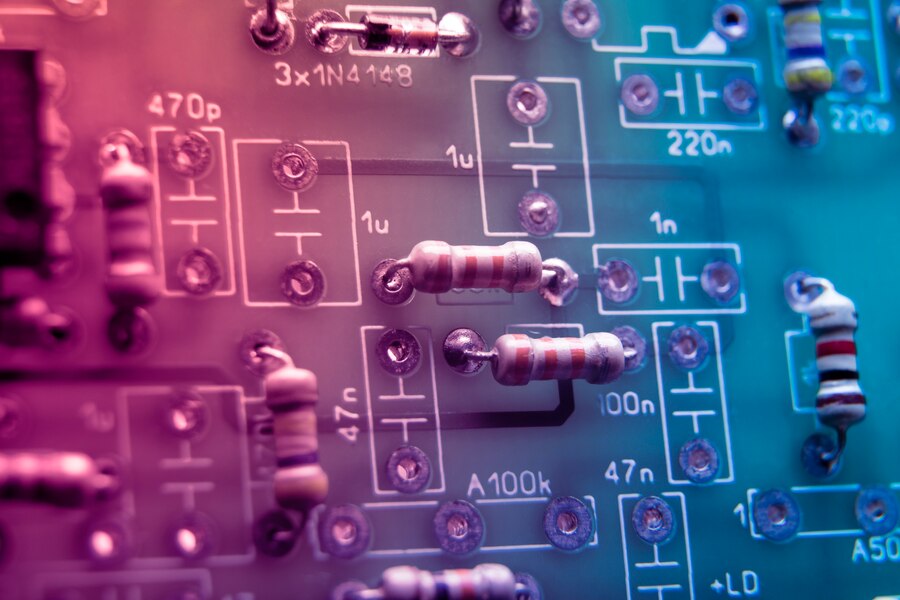
Yes, software updates or ECU (Engine Control Unit) issues can indeed cause acceleration problems in your Honda Accord. The ECU is responsible for managing various engine functions, including fuel injection, ignition timing, and throttle control.
If the ECU software is outdated or corrupted, it may not optimize these functions correctly, leading to poor acceleration, hesitation, or uneven engine performance. Software updates are sometimes released to fix bugs, improve performance, or enhance fuel efficiency.
However, if the update is not installed properly or if there is an issue with the ECU itself, it can negatively affect how the engine responds during acceleration.
How Can A Dirty Air Filter Affect Acceleration In My Accord?
A dirty air filter can significantly affect acceleration in your Honda Accord by restricting the flow of air into the engine. The engine relies on a proper air-fuel mixture to operate efficiently.
When the air filter is clogged with dirt and debris, it limits the amount of air reaching the engine, which can lead to an overly rich fuel mixture (too much fuel, not enough air). This imbalance can cause sluggish acceleration and reduced engine performance.
Additionally, the engine may struggle to reach its optimal power output, leading to hesitation or rough running when you accelerate. Regularly checking and replacing the air filter ensures that your engine receives the proper amount of air.
Solutions If Your Honda Accord Bogs Down Accelerating:
If your Honda Accord bogs down when accelerating, start by checking the air filter—replace it if it’s dirty. Next, inspect the fuel filter and fuel pump to ensure they aren’t clogged. Check the spark plugs and ignition coils, replacing any that are worn out.
Cleaning the throttle body can also help with smoother acceleration. Look for vacuum leaks, as they can mess with the air-fuel mix. A fluid change might fix the issue if the transmission fluid is low or dirty.
Lastly, make sure all engine sensors are working properly. If the problem persists, it’s best to see a mechanic.
Faqs:
1. Can a clogged catalytic converter cause my Accord to bog down?
Yes, a clogged catalytic converter restricts exhaust flow, leading to poor acceleration.
2. How does a faulty EGR valve affect acceleration?
A malfunctioning EGR valve can cause a rough idle and poor acceleration.
3. Could a failing alternator cause bogging during acceleration?
Yes, a weak alternator can reduce power to the engine, affecting acceleration.
4. What role does the timing belt play in acceleration?
A worn timing belt can cause engine misfires and sluggish acceleration.
Conclusion:
Honda Accord bogs down when accelerating If your Honda Accord bogs down during acceleration, addressing the issue promptly is crucial for optimal performance. Common causes include a clogged fuel filter, a failing fuel pump, or malfunctioning sensors. Regular maintenance and timely diagnostics can help resolve these problems, ensuring a smoother and more reliable driving experience.
